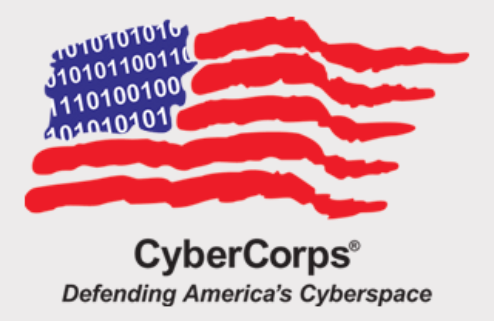Marquette University tips for students
The Information Technology Services cybersecurity team has made available Cybersecurity Tips for Students with some elements designed specifically for remote learning situations.
EXTERNAL Resources
There are many external resources that maintain current cybersecurity news.
We suggest the following usually reliable sources:
Cybersecurity Career Preparation
Those interested in pursuing careers in cybersecurity have numerous resources available to them.
Expand all | Collapse all
Cybersecurity Lab
The Center and the IACD specialization are supported through a lab that features cybersecurity tools offered to the university by Splunk. Splunk is a commercial leader in Security Information and Event Management (SIEM), User and Event Behavior Analysis (UEBA) using the Splunk Machine Learning Toolkit, and Security Orchestration and Automated Response (SOAR) using the Phantom product. The lab provides an opportunity for hands-on work with these prominent tools plus access to virtual machines, Kali Linux, and more. Students engaged in Professional Projects have created the SUSS (SIEM, UEBA, and SOAR in a SOC) environment that monitors lab computers used in the M.S. in Computer and Information Science program.
Scholarship for Service Opportunities
The U.S. Government provides scholarship for service programs that offer financial benefits and career benefits including significant career experience through service. Because Marquette University has been designated as a National Center of Academic Excellence these program are available to our students. We seek applicants to the DoD CySP and CyberCorps.
- The DoD CySP scholarships are very attractive with great benefits. These scholarships are available to all students in the Information Assurance and Cyber Defense specialization including students in the Accelerated Degree Program (5-yr B.S./M.S.) and our Career Change specialization. The DoD scholarship program has an annual application and award process. Applications are due in February and awards are issued before the end of the spring semester.
"The purpose of the program is to support the recruitment of new cyber talent and the retention of current highly skilled professionals within the DoD cyber workforce. Additionally, this program serves to enhance the national pipeline for the development of cyber personnel by providing grants to institutions of higher education"
These scholarships provide full tuition and a stipend that is very generous plus an internship opportunity. If you have questions about the DoD CySP please contact the Director of the center.

- Marquette University participates in the CyberCorps program that also provides Scholarships for Service (SfS). There is a simplified application form to apply for this opportunity. You must have a successful application to our M.S. in Computer and Information Science program with a specialization in Information Assurance and Cyber Defense before applying for the SfS scholarship. Please contact Dr. Debbie Perouli for further information. The DoD CySP is modeled after the CyberCorps program which has a long history, and significant positive results for students, the federal government, and academia. The benefits and obligations for students are similar to the DoD CySP program. The advantage to students is that the CyberCorps awards are managed at the university-level via the CyberWIN grant that Marquette University has received. The principal investigator for CyberWIN is Dr. Perouli. Here is a link to the CyberWIN website:
Cybersecurity Jobs Heat Map and Career Pathways
The national heat map showing cybersecurity jobs has been updated with new data and other features to align with the NICE workforce framework. The CyberSeek.org portal provides access to the heat map and additional information about career pathways. This site features state and metro-area data as well as national data about positions and certifications.
NICCS (National Initiative for Cybersecurity Careers and Studies) recently updated its career pathways tool.
Education Programs
In addition to the program at Marquette University, there are a number of academic programs in Wisconsin offering education and training for cyber defense. Examples include the specialization in our master's degree, undergraduate concentrations within baccalaureate programs, two-year degrees, and technical certificate programs. Due to the growing interest in cyber defense the list of program is expanding. Programs in Wisconsin include the following:
- Marquette University offers a Specialization in Information Assurance and Cyber Defense within the master's in Computer and Information Science program. This curriculum path is associated with the designation of Marquette University as a Center for Academic Excellence in Cyber Defense Education by DHS and NSA.
- Madison Area Technical College offers an IT–Network Security Specialist Associate Degree in Applied Science and an IT-Information Security certificate program
- Milwaukee Area Technical College offers several programs. an associate degree and an accelerated associate degree in IT - Information Systems Security Specialist. They also offer a Digital Forensic Analyst Technical Degree and certificates in Information Security Fundamentals, Infrastructure Security; IT-Security Auditing, and System Administration and Security.
- University of Wisconsin–Parkside offers a 9-credit certificate in Cyber Security It is the first computer science certificate offered by a four-year university in Wisconsin that meets the Committee on National Security Systems National Training Standard for Information Systems Security (INFOSEC) Professionals, NSTISSI No. 4011.
- Waukesha County Technical College (WCTC) received designation as one of the National Centers of Academic Excellence in Cyber Defense 2-Year Education (CAE-2Y) in recognition of campus activities and the curriculum in the IT - Network Security Specialist Associate of Applied Science degree. It is the only technical program in the State of Wisconsin to receives such recognition from the National IA Education & Training Program (NIETP). WCTC also offers a 16-credit Technical Certificate as a Cyber Security Specialist.
- University of Wisconsin–Stout, Wisconsin's Polytechnic University, offers a Cyber Security concentration within its bachelor's degree in applied mathematics and computer science degree.
- Moraine Park Technical College offers a 12-credit Information Technology – Information Security certificate at its Fond du Lac campus.
- University of Wisconsin–Whitewater offers an emphasis on networking and security within its information technology and supply chain management department.
Certifications
There are many professional training programs leading to professional certification. These include:
- CompTIA--Security+, Network+, and CySA+
- International Association of Privacy Professionals--CIPP
- Global Information Assurance Certification--GIAC
- (ISC)2 Information Security Training--CAP, CISSP, ISSMP, ISSAP, ISSEP
- EC Council--CEH, CHFI, LPT.ECSA
- IACRB Information Assurance Certification--CCFE, CDRP, CREA, CSSA, CWAPT, CPT,CEPT
- ISACA Information Security Training--CRISC, CGEIT, CISA, CISM
Certification Preparation
Through a gift to the university from ULINE, skills training classes are made available to students. This is based on the INFOSEC Skills training platform.
Through the library, the university subscribes to O'Reilly from Proquest (formerly listed as Safari Books Online). This resource provides an extensive collection of online materials to prepare for certifications.
NICE Challenge Labs
The National Initiative for Cybersecurity Education has funded the development of labs that challenge students to perform hands-on work in virtual environments. The NICE Challenge labs provide students workforce experiences before they enter the workforce through realistic business situations/scenarios. The goal of the Challenge project has been to provide the most realistic experiences to students, at-scale year-round, while also generating useful assessment data about student knowledge, skills, and abilities.
There are over 100 scenarios that can challenge student knowledge. The challenges range in difficult from very simple (e.g., examine and report group policies in a WIndows environment) to quite complex (e.g., discovering and removing malware impacting Domain-Controller operations). Contact the Director of the Center for suggestions on using this facility

